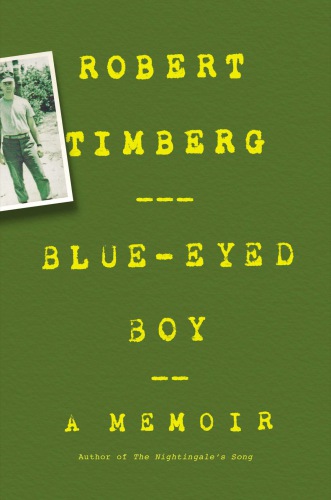
Blue-Eyed Boy
A Memoir
کتاب های مرتبط
- اطلاعات
- نقد و بررسی
- دیدگاه کاربران
نقد و بررسی

May 26, 2014
In this straightforward and unsentimental account, Timberg (State of Grace) traces the trajectory of his career, from promising Naval Academy graduate and wounded war veteran to success as a journalist. With two weeks left before his rotation tour date in Vietnam, Lieutenant Timberg was severely disfigured when the amphibian tractor he was riding hit a mine and burst into flames. He attributes much of his early recovery to the encouragement of his first wife, Janie, a teacher in Laguna Beach, Calif., who stood by him through numerous reconstructive surgeries and also helped him find impetus for a new life after the army, namely, journalism. Timberg attended graduate school at Stanford, where he had to overcome his fear of speaking face-to-face with people; he also had to confront the political split in the country between those who fought in the war (few of the privileged at Stanford) and those who dodged their draft calls, a subject that keeps him simmering throughout. Eventually, his marriage crumbled under the stress of recovery, but Timberg, a Nieman fellow, devoted his time to writing books.

June 1, 2014
A distinguished journalist and former Marine's account of returning home from Vietnam and finding personal and professional success despite life-altering disfigurement.In January 1967, Timberg (State of Grace: A Memoir of Twilight Time, 2004, etc.) was days away from the end of his tour in Vietnam when his combat vehicle struck a land mine. He survived, but flames scorched his face and arms, leaving him with third-degree burns. In less than two years, Timberg underwent 25 of the 35 reconstructive surgeries he would need to regain his health. Yet by the end, he still looked "like a monster." Uncertain of his future and in need of a career to support his growing family, Timberg studied journalism at Stanford, where he realized that although writing was a solitary profession, he would still have to interact with others as a reporter and show the face that marked him as a participant in an unpopular war. It was only after he landed his first job as a reporter for the Evening Capital in Annapolis and began engaging with his work that he began his "transition from victim" to committed journalist. Timberg quickly moved from covering local news to reporting on the Naval Academy. Ambitious and yearning for greater challenges, the author transferred to the Baltimore Sun, where he covered local politics and, eventually, the White House. But increasing success came at a price, including the end of his first marriage. Timberg also found that he could not leave his military past behind. In 1986, the Sun tapped him to cover the Iran-Contra scandal, which involved three Naval Academy graduates: Oliver North, Robert McFarlane and John Poindexter. The scandal, and the book that later emerged from it, became a kind of extended catharsis for Timberg. Both forced him to revisit his own brutal experiences and, in so doing, help a nation still tormented by Vietnam find the beginnings of its own peace.An empathetic and extremely candid memoir from a man who decided "to remember how I decided not to die...not let my future die."
COPYRIGHT(2014) Kirkus Reviews, ALL RIGHTS RESERVED.

July 1, 2014
This thoroughly absorbing autobiography really begins with the author's life-altering experience of being badly wounded (and severely and permanently disfigured) as a marine officer in Vietnam. He takes the narrative through his harrowing recovery (including 35 operations), beginning a family, and starting a journalistic career. Timberg admits he has not distinguished himself as a husband (two divorces), but he is now retired from a journalistic career of high distinction. As a White House correspondent, he did some of the best coverage of the Iran-Contra affair and includes vivid portraits of three of it principalsRobert McFarlane, Oliver North, and John Poindexter. He also became well acquainted with Senator John McCain, of whom he has written a biography. Timberg will strike many readers as demonstrating the truth of the notion that genius is an infinite capacity for taking pains although, in Timberg's case, he first had to demonstrate a large capacity for enduring pain.(Reprinted with permission of Booklist, copyright 2014, American Library Association.)

February 15, 2014
That Timberg spent three decades as a reporter, editor, and White House correspondent for the Baltimore Sun is interesting. That he did so after terrible injuries sustained in Vietnam in 1967, which led to 35 operations, is more newsworthy. But what's especially important here is that, having immersed himself in reporting on the Iran-Contra scandal and talking with the Vietnam-era veterans at the heart of it (see his The Nightingale's Song), he finally saw clearly how the Vietnam War has shaped this nation.
Copyright 2014 Library Journal, LLC Used with permission.

























دیدگاه کاربران